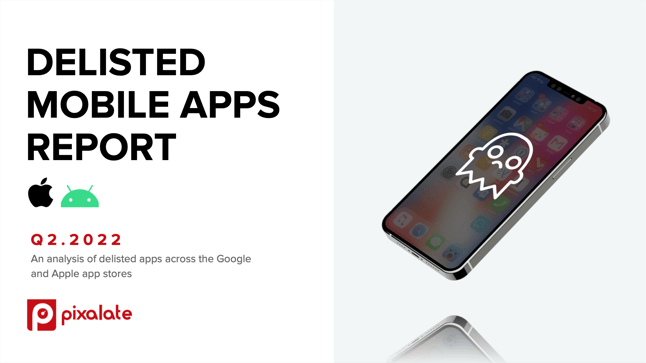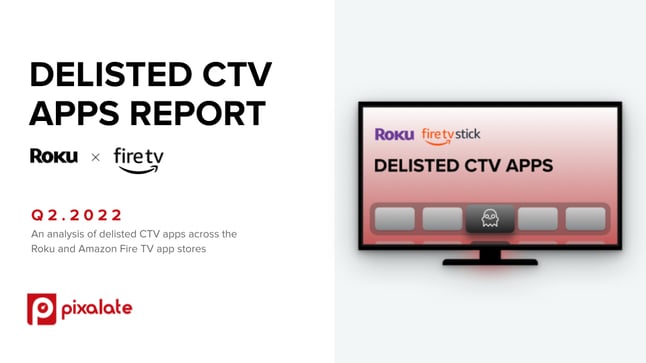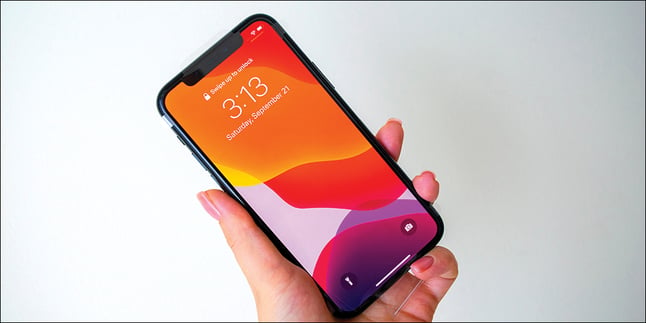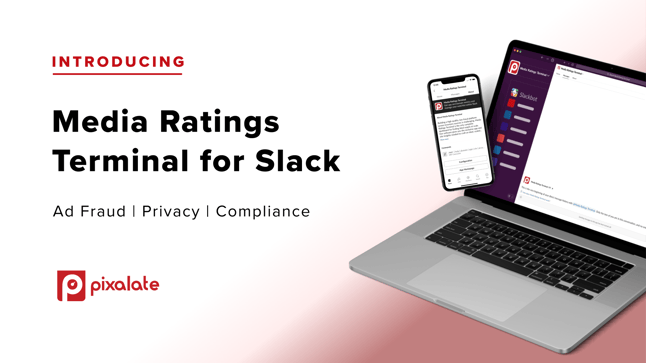
This week's review of ad fraud and privacy in the digital advertising space:
 Pixalate released the Q2 2022 Delisted Mobile Apps Report, containing insights about mobile apps removed from the Google Play Store and Apple App Store. The analysis helps developers and advertisers recognize potential threats of privacy and compliance breaches.
Pixalate released the Q2 2022 Delisted Mobile Apps Report, containing insights about mobile apps removed from the Google Play Store and Apple App Store. The analysis helps developers and advertisers recognize potential threats of privacy and compliance breaches.
Pixalate analyzed more than 5 million mobile apps across the Google and Apple app stores, and found that nearly 600,000 were delisted in Q2 2022 — an increase of almost 3x from the 220k delisted in Q1 2022.
Key findings:
Through analysis of delisted Google Play Store and Apple App Store apps in Q2 2022, Pixalate found that:
 Pixalate released the Q2 2022 Delisted CTV Apps Report for a detailed look at Connected TV (CTV) apps delisted from the Roku and Amazon Fire TV app stores.
Pixalate released the Q2 2022 Delisted CTV Apps Report for a detailed look at Connected TV (CTV) apps delisted from the Roku and Amazon Fire TV app stores.
 MacObserver published an article summarizing Pixalate’s Q2 Delisted Mobile Apps Report, saying, “Back in May, Apple announced that they would be removing “abandoned” apps from the App Store, and it looks like its making good on a promise. The company made an announcement stating that they would remove apps that did not receive an update 30 days after the announcement. During this time, Pixalate crawled the App Store and discovered that 650k apps met Apple’s qualifications.
MacObserver published an article summarizing Pixalate’s Q2 Delisted Mobile Apps Report, saying, “Back in May, Apple announced that they would be removing “abandoned” apps from the App Store, and it looks like its making good on a promise. The company made an announcement stating that they would remove apps that did not receive an update 30 days after the announcement. During this time, Pixalate crawled the App Store and discovered that 650k apps met Apple’s qualifications.
According to the Q2 2022 Delisted Mobile Apps Report provided by Pixalate, Apple has been cleaning out apps that have not seen an update at a seemingly faster pace than Google. The report is based around both the Google Play store and the Apple App Store, and can potentially help with privacy threats as well as compliance breaches due to the apps not updating.”
 Apple Insider referenced Pixalate’s findings in its Q2 Delisted Mobile Apps Report. The article states, “According to a new report from fraud protection firm Pixalate, Apple and Google delisted 592,000 apps from the App Store and Google Play, respectively, in Q2 2022. That's a major increase from the 220,000 apps the two firms delisted in the first quarter.”
Apple Insider referenced Pixalate’s findings in its Q2 Delisted Mobile Apps Report. The article states, “According to a new report from fraud protection firm Pixalate, Apple and Google delisted 592,000 apps from the App Store and Google Play, respectively, in Q2 2022. That's a major increase from the 220,000 apps the two firms delisted in the first quarter.”
“According to Pixalate, 31% of delisted apps on Apple's App Store had no stated privacy policy. At least 19 apps delisted in the second quarter on the App Store were linked to Sberbank, a Russian-owned business.”
 Phone Arena also covered Pixalate’s Q2 Delisted Mobile Apps Report, saying, “Now, a new report from fraud protection firm Pixalate on PR NewsWire shows that the companies have been bringing the hammer down on abandoned or shady apps. The two have collectively pulled a record 592,000 apps in the second quarter of this year from their respective app stores.”
Phone Arena also covered Pixalate’s Q2 Delisted Mobile Apps Report, saying, “Now, a new report from fraud protection firm Pixalate on PR NewsWire shows that the companies have been bringing the hammer down on abandoned or shady apps. The two have collectively pulled a record 592,000 apps in the second quarter of this year from their respective app stores.”
“In the previous quarter, the two companies together delisted 220,000 such apps – the number this quarter is more than double this amount – 592,000 apps, according to the report from Pixalate.”
“Pixalate states that prior to that massive cleaning (in the previous quarter, Q1 of 2022) Apple had delisted only 5,000 apps from the App Store.”
 MacTrast published key information from Pixalate’s Q2 Delisted Mobile Apps Report:
MacTrast published key information from Pixalate’s Q2 Delisted Mobile Apps Report:
“According to a new report from fraud protection firm Pixalate, Apple removed 439,000 apps in the second quarter, an 8,652% increase from Q1 2022. Combined, the Apple App Store apps had nearly 40 million user ratings.”
“Pixalate says 31% of delisted apps on Apple’s App Store had no stated privacy policy. At least 19 of the apps Apple delisted in the second quarter on the App Store were linked to Sberbank, a Russian-owned business.”
 Help Net Security published a summary of Pixalate’s new MRT for Slack bot, saying, “the new app brings ad fraud data straight to Slack as part of Pixalate’s mission to democratize access to ad fraud, privacy, and compliance insights. Pixalate’s MRT delivers ad fraud, privacy and compliance ratings and insights across websites and mobile and CTV apps across the Google, Apple, Amazon, and Roku app stores.”
Help Net Security published a summary of Pixalate’s new MRT for Slack bot, saying, “the new app brings ad fraud data straight to Slack as part of Pixalate’s mission to democratize access to ad fraud, privacy, and compliance insights. Pixalate’s MRT delivers ad fraud, privacy and compliance ratings and insights across websites and mobile and CTV apps across the Google, Apple, Amazon, and Roku app stores.”
“The MRT for Slack release is another move by Pixalate to increase transparency and access to fraud and privacy compliance risk data in the ad tech space. This follows Pixalate’s recent releases of the Ad Trust & Safety API Suite and COPPA Compliance Technology to identify likely child-directed mobile apps across the Google and Apple app stores.”
*By entering your email address and clicking Subscribe, you are agreeing to our Terms of Use and Privacy Policy.
These Stories on Weekly Recaps
*By entering your email address and clicking Subscribe, you are agreeing to our Terms of Use and Privacy Policy.

Disclaimer: The content of this page reflects Pixalate’s opinions with respect to the factors that Pixalate believes can be useful to the digital media industry. Any proprietary data shared is grounded in Pixalate’s proprietary technology and analytics, which Pixalate is continuously evaluating and updating. Any references to outside sources should not be construed as endorsements. Pixalate’s opinions are just that - opinion, not facts or guarantees.
Per the MRC, “'Fraud' is not intended to represent fraud as defined in various laws, statutes and ordinances or as conventionally used in U.S. Court or other legal proceedings, but rather a custom definition strictly for advertising measurement purposes. Also per the MRC, “‘Invalid Traffic’ is defined generally as traffic that does not meet certain ad serving quality or completeness criteria, or otherwise does not represent legitimate ad traffic that should be included in measurement counts. Among the reasons why ad traffic may be deemed invalid is it is a result of non-human traffic (spiders, bots, etc.), or activity designed to produce fraudulent traffic.”

